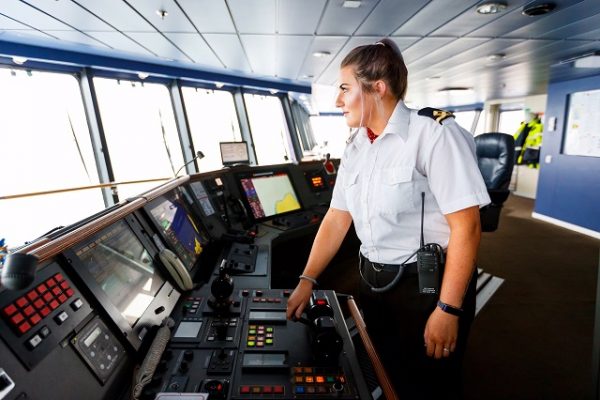AI assisted vessels to save fuel, battery power propulsion, huge reduction of single use plastic on board, continued low level of crew and passenger accidents and an increased rate of female leaders. These are some of the highlights in leading ferry company Stena Lines sustainability review for 2018. Stena Line has now released its third sustainability review “A Sustainable Journey” describing initiatives, improvements and challenges in the operations from the sustainability perspective as well as results on their ambitious sustainability targets. The review also highlights the main initiatives the company has worked on during the past year.
Stena Line has now released its third sustainability review “A Sustainable Journey” describing initiatives, improvements and challenges in the operations from the sustainability perspective as well as results on their ambitious sustainability targets. The review also highlights the main initiatives the company has worked on during the past year.
Stena Line CEO Niclas Mårtensson said: “With size comes responsibility and our ambition is to improve our operations every year to become a leader in sustainable shipping. The past year we have had exiting developments pairing artificial intelligence with the know-how of our experienced employees on-board as well as increased focus on electrification. We have continued our efforts within crew and passenger safety as well as launching a new initiative for more diversity in our operations. This is a very exciting time for our company and I’m proud that Stena Line continues help shape the industry for European short-sea transportation.”
Stena Line’s sustainability strategy is divided into five focus areas tied to the UN Global Goals for sustainable development with ambitious targets set in each focus area. They are Equality & Inclusion, Good Health & Wellbeing, Clean Energy, Responsible Consumption, Life Below Water.
“We have more than 5,500 employees who all make big and small contributions towards our sustainability targets and it’s great to see that we are making good progress in many areas while maintaining a safe and efficient operation. Our industry has a big challenge with our fossil dependence and our total carbon emissions increased in line with freight volumes so we have more to do in this area. The initiatives started within electrification are relatively new to our industry but extremely important going forward as we gradually move to low-carbon operations,” said Erik Lewenhaupt, Head of Sustainability.


.gif?rand=766)











